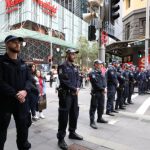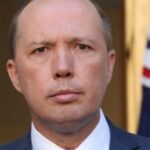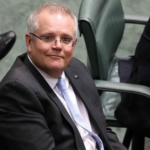Morrison to Further Enhance Military Deployment Capabilities for “Civil Emergencies”

The Morrison government quietly tabled a bill before the lower house on 3 September that’s designed to ensure Australian Defence Force reservists can be called out to deal with “natural disasters and other civil emergencies” with the same ease as fulltime troops.
The Defence Legislation Amendment (Enhancement of Defence Force Response to Emergencies) Bill 2020 (the Reserve Call Out Bill) is yet another shot in the arm for the bipartisan project of militarising the Australian domestic sphere.
In his second reading speech, international development minister Alex Hawke cited the bushfire crisis and the COVID-19 pandemic as reasons for streamlining of reservist call out capabilities for a range of issues, which include “peace enforcement”, “civil emergency” and “disaster relief”.
The minister added that the bill will also provide defence force personnel with immunity to civil and criminal liability, when it comes to actions taken in relation to natural disasters or other emergencies, as well as in cases of protecting Commonwealth agencies, personnel and property.
Indeed, when considered alongside 2018’s Defence Force Call Out Bill, there’s a very clear pattern emerging of government legislating to make certain that the deployment of troops to civil matters is a much easier and more common scenario.
Internal deployment
Having already been passed in the lower house, the Reserve Call Out Bill seeks to amend several sections of the Defence Act 1903 (Cth), so that the governor general can more easily issue reservists with a call out order to assist in state and territory matters, including civil emergencies.
While the Reserve Call Out Bill’s explanatory memorandum underscores that a “natural disaster or other emergency” is an incident “not requiring the use of force”, the actual legislation makes no such distinction.
The bill then goes on to insert new section 123AA into the Defence Act, which would provide immunity to protected persons, so they wouldn’t be criminally or civilly liable in respect to anything done in “good faith” when responding to “a natural disaster or other emergency that is imminent”.
This immunity can extend to assisting in “the protection of Commonwealth agencies, Commonwealth personnel or Commonwealth property” if deemed necessary.
Protected persons afforded this immunity can include Defence Force personal and approved Australian public service and Commonwealth employees, as well as – get this – sanctioned foreign defence force personnel and approved overseas law enforcement officers.
Troops on the streets
In November 2018, the Morrison government passed the Defence Amendment (Call Out of the Australian Defence Force) Bill 2018 (the Defence Call Out Bill).
It streamlined the process of calling out ADF troops to assist in state and territory domestic violence incidents.
“Domestic violence” is a vague term contained in section 119 of the Australian Constitution, where it stands as something different from the threat of “invasion”.
And while section 39 of the Defence Force Act, limits troops from being called out to “stop or restrict any protest, dissent, assembly or industrial action”.
The troops can be sent in to “stop or restrict any protest, dissent, assembly or industrial action” if there’s a “reasonable likelihood” of death or injury, or “serious damage to property”.







